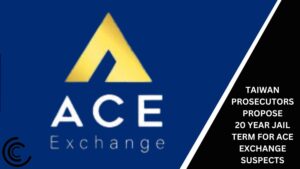Key takeaways:
- An advocacy group for DeFi has asked the USPTO to examine a patent held by a business it claims is a “patent troll.”
- It launched a lawsuit in October against the DeFi protocols MakerDAO and Compound Finance after finding no buyers.
An advocacy group for decentralized finance (DeFi) has asked the USPTO to examine a patent held by a business it claims is a “patent troll.”
The DeFi Education Fund (DEF) claimed in a blog post on September 11 that it submitted a more than 90-page petition to the Patent Trial and Appeal Board on September 7 in an effort to invalidate a patent held by True Return Systems.
The patent, which was granted in 2018, is stated to include a method for “linking off-chain data to a blockchain,” according to DEF legal chief Amanda Tuminelli in a tweet on September 11 on Twitter.
According to Tuminelli, True Return attempted to market its invention as a nonfungible token (NFT). It launched a lawsuit in October against the DeFi protocols MakerDAO and Compound Finance after finding no buyers. Tuminelli stated:
“Clearly goal was to name defendants who could not answer the complaint so [it] could get a default judgement,”
The protocol “that either can’t challenge them in court or don’t have the resources to do so,” according to the allegation made by True Return:
“would repeat the process with other protocols that either can’t challenge them in court or don’t have the resources to do so.”
The InterPlanetary File System (IPFS) and the decentralized storage platforms Sia, Storj, and Swarm, according to DEF, are examples of similar existing technology that is similar to True Return’s stated in the patent, which was not novel at the time it was awarded.
According to DEF, it filed the petition with the USPTO to protect the right to use and create open-source software, to thwart any prospective legal actions True Return might take against cryptocurrency projects, and to support MakerDAO and Compound in their legal defense.
True Return has three months to voluntarily respond to the petition; following that, the USPTO must decide whether or not to proceed with its review of the patent, at which point it has 12 months to determine whether or not the patent should be canceled.










